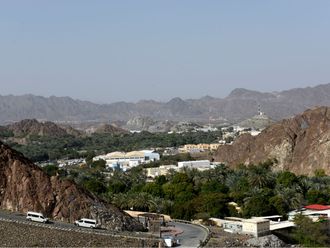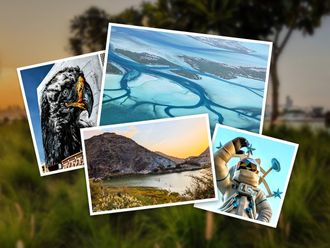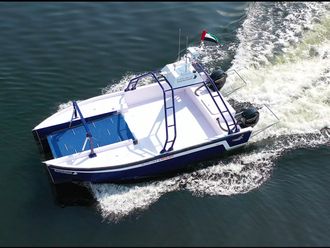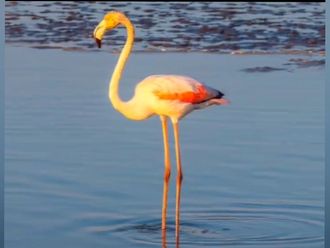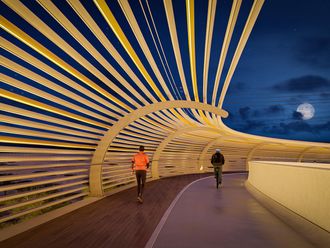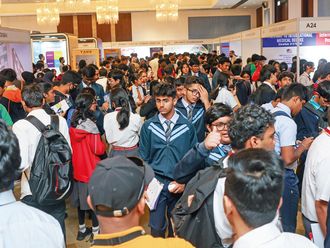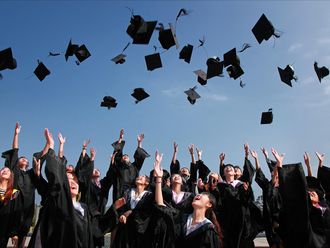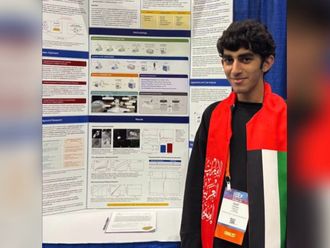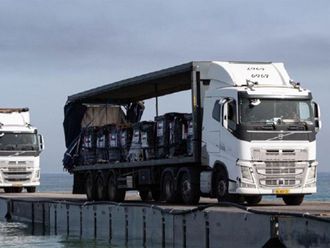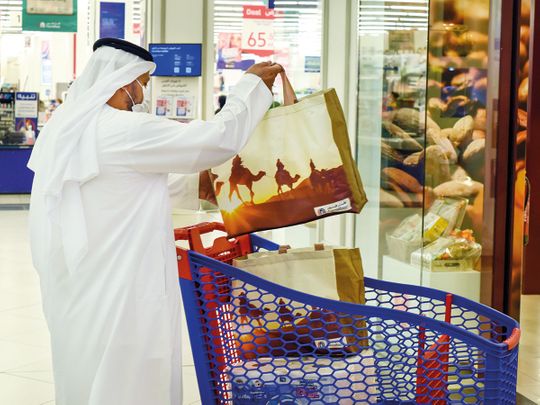
Abu Dhabi: Over the last 12 months, Abu Dhabi has reduced the daily use of single-use plastic bags by more than half a million, and the emirate also collected 30 million plastic water bottles for recycling.
These were some of the biggest initiatives launched by the emirate’s environment sector regulator, the Environment Agency Abu Dhabi (EAD) in 2022, and are now detailed in the EAD’s newly launched annual report for the year.
The ban on the use of single-use plastics has understandably been the most noticeable change, calling for a change in the way of life for residents.
“The year 2022 was yet another year full of achievements and successes by EAD, as we launched and implemented several projects and programmes that reinforced Abu Dhabi’s pioneering role in preserving the environment at the local, regional and global levels – in line with the UAE’s ambitious vision for sustainable development, and building on its significant successes that continue to resonate around the world,” said Dr Shaikha Salem Al Dhaheri, EAD secretary general.
Reducing plastic use
“Among the most important projects of the last 12 months was the implementation of our Single-Use Plastic Policy, which included a ban on the use of single-use plastic bags in Abu Dhabi. The initiative was held in cooperation with major retail outlets who welcomed this approach and provided the support necessary to achieve its goals. Through this project, we managed to reduce the daily consumption of plastic bags by more than half a million. In line with the vision of the UAE government, we are on our way to implementing a complete ban of all single-use plastic bags across the country by 2024,” she added.
The emirate also last year launched a centennial vision for 2071, which aims to propagate a shared environmental vision for the next 50 years. The Abu Dhabi Environmental Centennial 2071 is aligned with the UAE government’s pledge to make it the best country in the world by the 100th anniversary of the union.
According to the EAD, the ban on single-use plastic bags in Abu Dhabi which has been in place since June 1, 2022 has seen consumers switching to sustainable and reusable bags in order to reduce their environmental footprint. The ban, part of the Abu Dhabi Single-Use Plastic Policy, was implemented in close cooperation with the largest retailers in Abu Dhabi and data collected from EAD’s retail partners revealed that since the beginning of the ban, the number of single-use plastic shopping bags dropped by more than 90 per cent.
Another aspect of the Policy has seen 30 million plastic bottles recovered in 2022, in comparison to 7.25 million bottles in 2021, At presente, more than 850,000 bottles are collected every week for recycling.
To support the Single-Use Plastic Policy, EAD set an aspirational, long-term target to achieve zero consumption of single-use plastics, while generating zero waste and zero carbon emissions, with zero impact on biodiversity through a public facing campaign known as ‘Mission to Zero.’ The campaign was composed of various offline and online activations targeting all community members, government departments and businesses, retailers, restaurants, and especially, the youth.
Preserving natural resources
One of EAD’s most outstanding achievements was the launch of the Abu Dhabi Mangrove Initiative in February 2022 during a meeting of His Highness Sheikh Khalid bin Mohamed bin Zayed Al Nahyan, Abu Dhabi Crown Prince and Prince William at Jubail Island in Abu Dhabi. The Abu Dhabi Mangrove Initiative was established to provide a platform for the development of innovative mangrove planting solutions, while helping mitigate the effects of climate change, and raising awareness of mangroves’ importance and the need to restore them.
Another important highlight in 2022 was His Highness Sheikh Hamdan bin Zayed Al Nahyan inaugurating the Al Wathba Fossil Dunes Protected Area. The area is the first of its kind in the UAE, and one of the first in West Asia and comprises more than 1,700 fossil dunes, spread over seven square kilometres.
Citizen efforts
The EAD also launched two mobile phone applications last year: BAADR, and Abu Dhabi Nature. BAADR, sponsored by Borouge, rewards Abu Dhabi residents and citizens for completing different actions that will help protect the environment across the emirate. Abu Dhabi Nature is a free tool that helps educate the public on more than 4,000 species of animals and plants in Abu Dhabi. One of the app’s key features, Citizen Science, allows users to submit photographs or videos of any species they may in spot in wild ecosystems.
Sustainability initiatives
Also, during 2022, EAD and ENGIE announced the success of the “Blue Carbon” Environmental and Social Responsibility project’s second phase, run in partnership with Distant Imagery. The programme garnered attention for its highly innovative, drone-based mangrove planting technology, with more than 35,000 mangrove seeds planted at Mirfa lagoon in Abu Dhabi.
read more
Wildlife conservation
As part of the Sheikh Mohamed bin Zayed Arabian Oryx Reintroduction Programme, regarded as one of the world’s most successful conservation projects, EAD successfully transferred 20 Arabian Oryx to Shumari Wildlife Reserve in Jordan. The Agency continued the world’s largest mammal reintroduction programme by also successfully translocating 20 Scimitar-Horned Oryx and 25 Addax to Chad’s Ouadi Rime-Ouadi Achim Game Reserve. The success of the Sheikh
Zayed Falcon Release Programme continued with the release of 71 falcons into the wilds of Kazakhstan. The programme has successfully returned 2,159 falcons to their natural habitats since its establishment in 1995.
In addition, EAD rescued over 250 turtles with the support of The National Aquarium through the Wildlife Rescue Programme.
And for the third consecutive year, EAD recorded a remarkable improvement in the sustainable fishing index, which increased from 8.9 per cent in 2018 to 62.3 per cent by the end of 2021.
The regulator also assisted in the discovery of a new Eagle Ray Species (Aetomylaeus wafickii) in Abu Dhabi waters, which has been added to the global list.
Corporate sustainability
The authority has also made strides in promoting corporate sustainability. The launch of EAD’s ‘Green Industries’ Environmental Labelling Programme was created according to best international eco-labelling practices while taking into consideration the nature of the industrial sector in Abu Dhabi. The programme aims to build mutually supportive collaborations to enhance the contribution of industrial facilities in the field of environmental protection.


